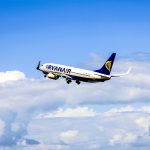Startup Investment in Portugal grows 30% year-on-year
Investment in Portugal’s budding tech ecosystem has been growing at an annual rate of 30% since 2016 according to data from Beta-i. The average investment is €330,000.
Beta-i, a Portuguese organisation created to boost entrepreneurship and on a mission to foster a true innovation culture, organised the Lisbon Investment Summit this week. The annual summit is Portugal’s answer to Web Summit, which is expected to move from Lisbon to another city by 2020.
Foreign and Portuguese entrepreneurs are increasingly choosing Portugal to startup their businesses. Being part of the European Union is one reason, with ease of access to talent from the 27-member states.
According to Elliot O’Connor, investment associate from the UK’s First Minute Capital in an interview with Portuguese on-line news site Eco, companies like Skype, SkyScanner and King are among the multinationals looking at partnerships with fledgling young companies in cities like Lisbon in areas such as machine learning, artificial intelligence, gaming and robotics.
O’Connor says that First Minute Capital – a venture capital entity – is looking to make its first investment into a Portuguese startup, as is Gonzalo Tradecete, managing partner of Faraday Venture Partners based in Madrid who says that the “Portuguese market is very interesting because there is a lot of talent and the costs are not huge.”
However, on the current trend of talking up unicorns, he states that 80% are not profit-making, with some losing €500 million per annum, and that many companies spoken about now will fail a few years down the line.
Wayra, the German company that works with Spanish firm Telefónica in the startups investment area, also says that for the first time it is looking to invest in Portugal because of its diversity and technology incorporation – two key factors when it comes to innovation in large companies like Telefónica.
They were sharing their experiences at the Lisbon Investment Summit this week organised by Beta-i in partnership with Lisbon City Council and with the support of Bright Pixel (Sonae IM), IE Business School and Turismo de Portugal.










